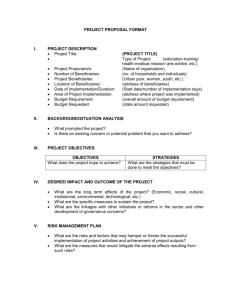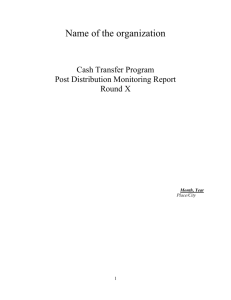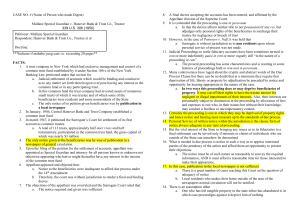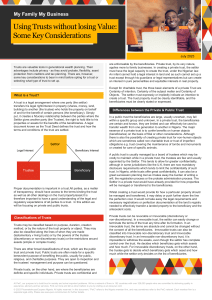TIME TO REVIEW TRUSTS Trust law has been evolving for
advertisement
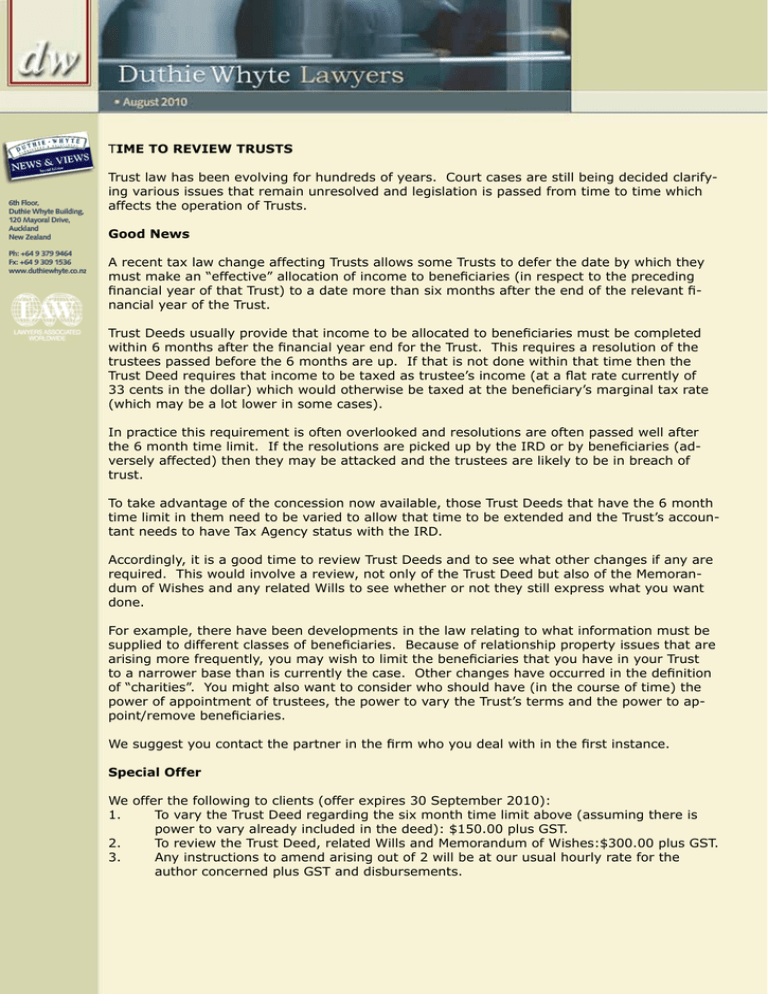
TIME TO REVIEW TRUSTS Trust law has been evolving for hundreds of years. Court cases are still being decided clarifying various issues that remain unresolved and legislation is passed from time to time which affects the operation of Trusts. Good News A recent tax law change affecting Trusts allows some Trusts to defer the date by which they must make an “effective” allocation of income to beneficiaries (in respect to the preceding financial year of that Trust) to a date more than six months after the end of the relevant financial year of the Trust. Trust Deeds usually provide that income to be allocated to beneficiaries must be completed within 6 months after the financial year end for the Trust. This requires a resolution of the trustees passed before the 6 months are up. If that is not done within that time then the Trust Deed requires that income to be taxed as trustee’s income (at a flat rate currently of 33 cents in the dollar) which would otherwise be taxed at the beneficiary’s marginal tax rate (which may be a lot lower in some cases). In practice this requirement is often overlooked and resolutions are often passed well after the 6 month time limit. If the resolutions are picked up by the IRD or by beneficiaries (adversely affected) then they may be attacked and the trustees are likely to be in breach of trust. To take advantage of the concession now available, those Trust Deeds that have the 6 month time limit in them need to be varied to allow that time to be extended and the Trust’s accountant needs to have Tax Agency status with the IRD. Accordingly, it is a good time to review Trust Deeds and to see what other changes if any are required. This would involve a review, not only of the Trust Deed but also of the Memorandum of Wishes and any related Wills to see whether or not they still express what you want done. For example, there have been developments in the law relating to what information must be supplied to different classes of beneficiaries. Because of relationship property issues that are arising more frequently, you may wish to limit the beneficiaries that you have in your Trust to a narrower base than is currently the case. Other changes have occurred in the definition of “charities”. You might also want to consider who should have (in the course of time) the power of appointment of trustees, the power to vary the Trust’s terms and the power to appoint/remove beneficiaries. We suggest you contact the partner in the firm who you deal with in the first instance. Special Offer We offer the following to clients (offer expires 30 September 2010): 1. To vary the Trust Deed regarding the six month time limit above (assuming there is power to vary already included in the deed): $150.00 plus GST. 2. To review the Trust Deed, related Wills and Memorandum of Wishes:$300.00 plus GST. 3. Any instructions to amend arising out of 2 will be at our usual hourly rate for the author concerned plus GST and disbursements. Look out for more legal updates shortly. Drop us an email to one of the addresses below if you would like to take advantage of this proposal. Nigel Harrison - nharrison@duthiewhyte.co.nz Brian Everett - beverett@duthiewhyte.co.nz Kerry Sharpin - ksharpin@duthiewhyte.co.nz Grant Aislabie - grant@duthiewhyte.co.nz Tamara Liebman - tliebman@duthiewhyte.co.nz Katalina Cribbins - kcribbins@duthiewhyte.co.nz Helen Thode - hthode@duthiewhyte.co.nz The material contained in this publication is of general comment only and neither purports, or intended to be advice on any particular matter. No reader should act on the basis contained in this publication without considering and if necessary, taking appropriate professional advice on their own particular circumstances. Duthie Whyte (“the firm”) expressly disclaims all and any liability to any person receiving this publication. No liability will be accepted by the firm, any of the contributing editors, or the publisher for any loss suffered by any person relying directly, or indirectly on this newsletter.

